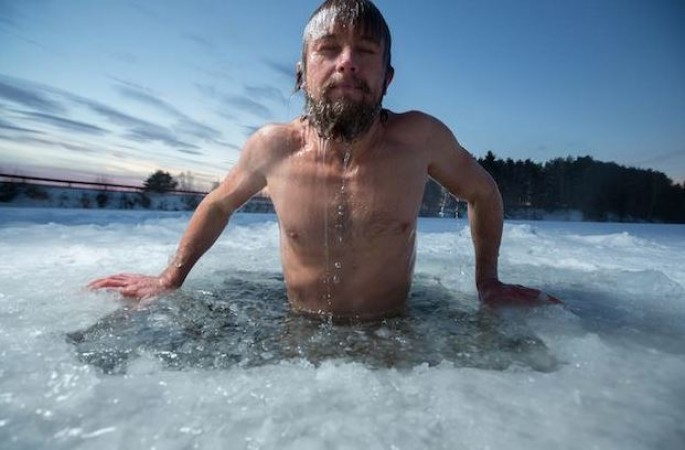
1. Introduction
In recent years, cold-water immersion therapy has gained significant attention for its potential health benefits. This practice involves exposing the body to cold water, often in the form of ice baths, cold showers, or natural bodies of cold water. While it may seem daunting at first, the benefits of cold-water immersion therapy are numerous and can positively impact both physical and mental well-being. In this article, we will explore the various advantages this therapy offers and how you can incorporate it into your daily routine.
2. Understanding Cold-Water Immersion Therapy
Cold-water immersion therapy, also known as cryotherapy, involves subjecting the body to cold temperatures for therapeutic purposes. The exposure to cold water triggers a range of physiological responses in the body, leading to several health benefits. By voluntarily exposing ourselves to cold water, we can harness the power of cold therapy and optimize our well-being.
3. Physical Benefits of Cold-Water Immersion Therapy
3.1 Reduced Inflammation and Muscle Soreness
Cold-water immersion therapy is widely recognized for its ability to reduce inflammation and alleviate muscle soreness. When immersed in cold water, blood vessels constrict, which helps to decrease swelling and inflammation. This can be particularly beneficial for individuals recovering from intense workouts or experiencing muscle injuries.
3.2 Enhanced Muscle Recovery
One of the key advantages of cold-water immersion therapy is its ability to enhance muscle recovery. The cold temperature aids in flushing out metabolic waste products and reducing the production of lactic acid in the muscles. As a result, muscles recover faster and are better prepared for subsequent workouts.
3.3 Improved Circulation and Cardiovascular Health
Exposing the body to cold water stimulates circulation and improves cardiovascular health. The cold temperature causes blood vessels to constrict and then dilate, leading to improved blood flow and oxygen delivery throughout the body. This enhanced circulation can have long-term benefits for cardiovascular health, reducing the risk of heart-related diseases.
3.4 Boosted Immune System Function
Cold-water immersion therapy has been found to boost immune system function. The cold exposure activates the production of white blood cells, which are essential for fighting off infections and diseases. Regular cold-water immersion sessions can strengthen the immune system, making it more resilient to illness.
4. Mental and Emotional Benefits of Cold-Water Immersion Therapy
4.1 Stress Reduction and Mental Clarity
Cold-water immersion therapy has profound effects on mental well-being. The shock of cold water triggers the release of endorphins, which are natural mood enhancers. These endorphins promote relaxation, reduce stress levels, and increase mental clarity. Cold-water immersion can be an effective tool for managing daily stress and improving overall mental resilience.
4.2 Improved Mood and Mental Resilience
Cold-water immersion therapy is associated with an improved mood and increased mental resilience. Regular exposure to cold water stimulates the release of neurotransmitters such as norepinephrine, which are responsible for regulating mood and promoting a sense of well-being. This therapy can be particularly beneficial for individuals struggling with depression or anxiety.
4.3 Enhanced Sleep Quality
The benefits of cold-water immersion therapy extend to sleep quality as well. Cold exposure triggers the production of melatonin, a hormone that regulates sleep-wake cycles. By incorporating cold-water immersion into your routine, you may experience more restful sleep and wake up feeling refreshed and energized.
5. Incorporating Cold-Water Immersion Therapy into Your Routine
5.1 Precautions and Safety Measures
Before starting cold-water immersion therapy, it's important to take certain precautions and ensure your safety. Individuals with underlying health conditions, such as heart problems or Raynaud's disease, should consult a healthcare professional before attempting cold-water immersion. Additionally, it's important to gradually adapt to colder temperatures and never stay in the water longer than recommended.
5.2 Gradual Adaptation and Progression
When incorporating cold-water immersion therapy into your routine, it's crucial to start gradually and allow your body to adapt to the cold temperatures. Begin with shorter exposure times and slightly cooler water, gradually increasing the duration and intensity as your body becomes accustomed to the therapy. This gradual progression will help you avoid any potential shock to your system.
5.3 Recommended Techniques for Cold-Water Immersion
There are several techniques for cold-water immersion therapy, including ice baths, cold showers, and natural bodies of cold water like lakes or rivers. Choose a method that suits your preference and comfort level. Start by exposing your body to cold water for a few minutes, and gradually extend the duration over time. It's essential to listen to your body and adjust the therapy according to your tolerance.
7. Conclusion
Cold-water immersion therapy offers a multitude of benefits for both physical and mental well-being. From reducing inflammation and muscle soreness to improving circulation, boosting the immune system, and enhancing mental resilience, the advantages of cold-water immersion are significant. By incorporating this therapy into your routine with proper precautions and gradual adaptation, you can experience the positive effects it has to offer.
Justice Srikrishna Raises Alarm Over Data Protection Bill's Govt Exemption, Igniting Privacy Debate
Japan Remembers Shinzo Abe: One Year Later, Pursuing Justice and Honoring a Visionary Leader
The railway cuts AC chair car train ticket prices, including Vande Bharat, by upto 25%, Details Here